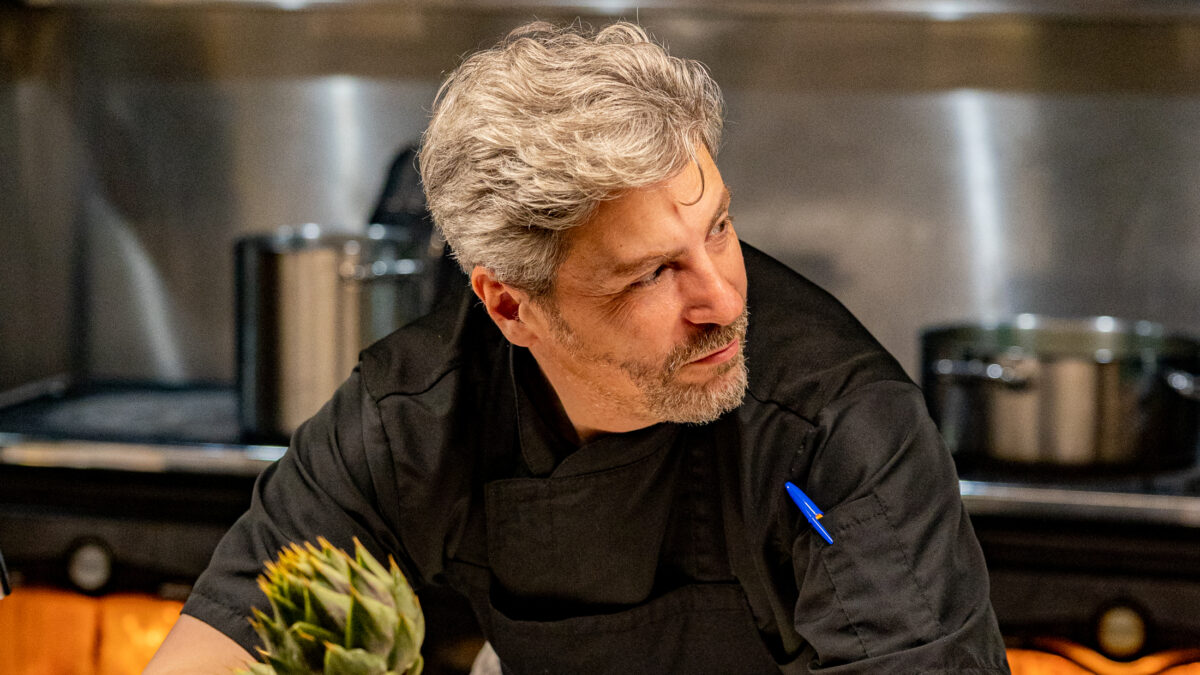Manolis Papoutsakis, Chef (Haroupi – Deka Trapezia – Pharaoh)
Greek gastronomy is a vast mosaic of different local cuisines from across the country, all of which share one key feature: The flavour of Greece. You might ask: Does such a thing – “the flavour of Greece” – exist when there is such a rich diversity of traditions, ingredients and cooking styles producing such a multifaceted result? And yet, I firmly believe the answer is yes.
If you look closely and start identifying the common threads within Greek cuisine, you will see foundational similarities that unify its regional differences in terms of flavour. In Greece, the products we traditionally use come from our land. Whether it’s vegetables, legumes, grains, wild greens, herbs, olive oil – or meat, fish, cheese and other proteins – they are our own. We produce them ourselves or gather them from nature.
In Greece, we traditionally eat foods in their season, at their prime. So, seasonality is a rule, and nature offers us so much each time of year that there’s no need to resort to out-of-season ingredients. In Greece we cook simply. Simply, not simplistically. This simplicity, combined with seasonality and locality, defines our flavour. Every dish uses few ingredients, the pot and slow cooking are dominant, flavours blend yet also shine individually. The old ways – frugality, moderation and the ingenuity of doing more with less – allow our cuisine to shine, especially when paired with top-quality ingredients at their seasonal best.
And so, one bite from any corner of Greece is enough. Enough to know – with your eyes closed – that what you’re tasting is ours. That is the flavour of Greece. It is the unpretentious, deeply satisfying flavour that warms the soul.
It is the metaphysics of Greek cuisine – beyond recipes and dish names – extending into an emotional response that starts in the mouth and ends in the heart. We are fortunate.
The views expressed in this article are the author’s personal opinions and do not reflect the views or opinions of the Ministry of Rural Development and Food.










